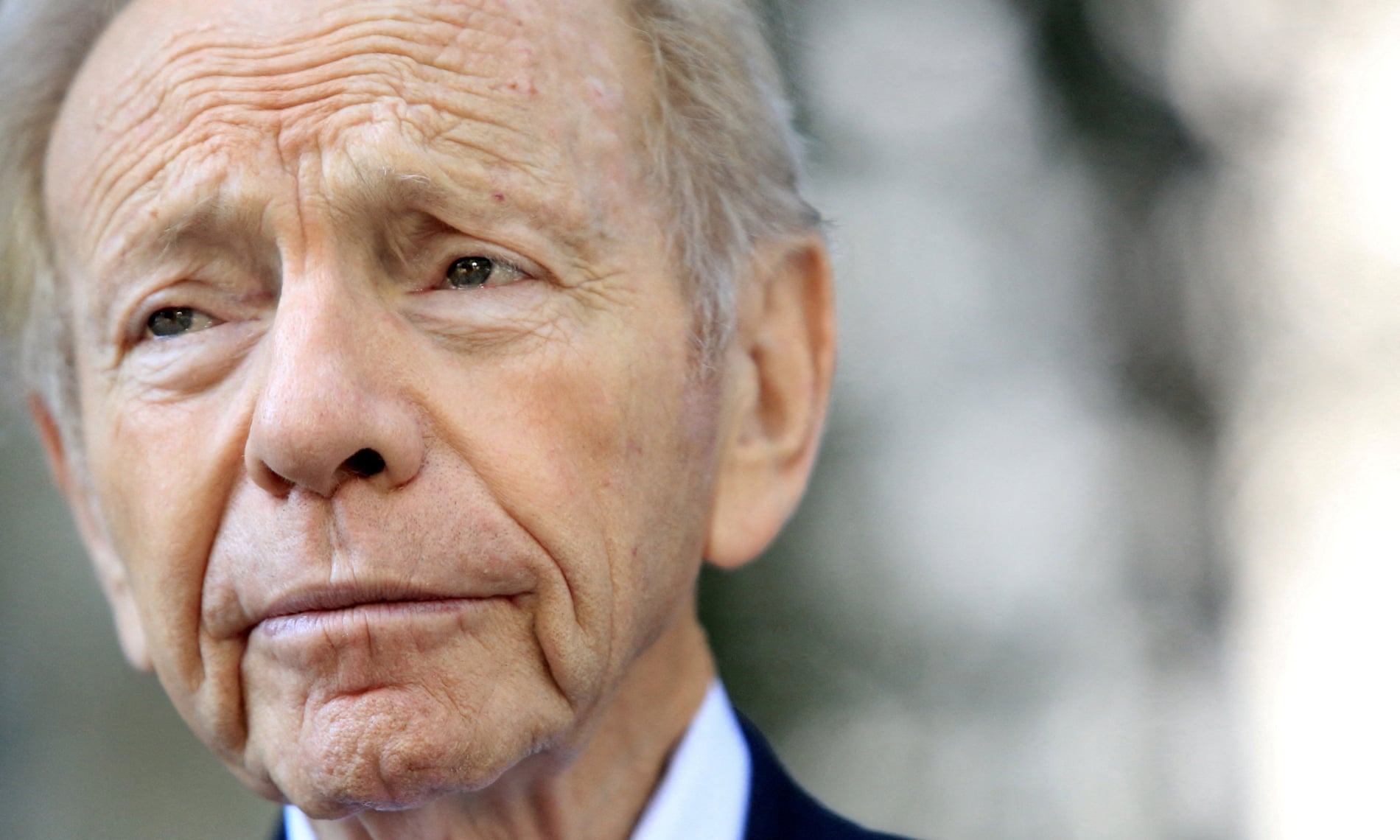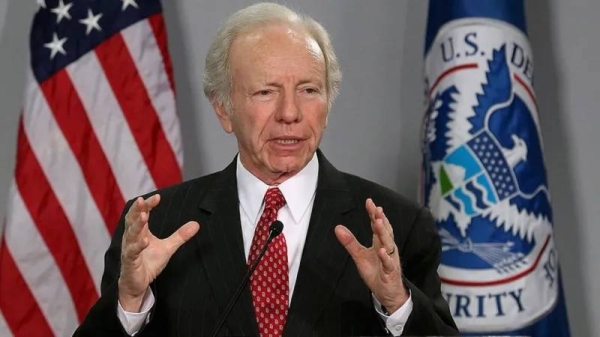
The former US senator Joe Lieberman, who ran as the Democratic nominee for vice-president in the 2000 election and became the first Jewish candidate on a ticket for the White House, alongside presidential candidate Al Gore, has died at the age of 82.
Lieberman died in New York, according to a statement from his family. He was a Connecticut senator for four terms.
Lieberman took one of the most controversial arcs in recent US political history. Though he had the status of a breakthrough candidate for America’s Jewish community as Gore’s running mate, his support for president George W Bush’s Iraq war heralded a rightward journey that saw him anger many Democrats.
Lieberman sought the Democratic presidential nomination in 2004 but his support for the war in Iraq doomed his candidacy with voters, amid increasing anger at the invasion and its bloody aftermath. It also meant Lieberman was rejected by Connecticut’s Democrats when he ran for a fourth Senate term there in 2006.
However, in what he said was a vindication of his positions, he kept his Senate seat by running as an independent candidate, with substantial support from Republican and independent voters.
By 2008, Lieberman was a high-profile supporter of Republican senator John McCain in his bid to defeat Democrat Barack Obama’s quest to become America’s first Black president.
Thus Lieberman did manage to both impress and offend people across party lines. He expressed strong backing support for gay rights, civil rights, abortion rights and environmental causes that often won him praise of many Democrats, and he frequently fit mould of a north-east liberal.
But he was also the first national Democrat to publicly criticize President Bill Clinton for his extramarital affair with then White House intern Monica Lewinsky. He scolded Clinton for “disgraceful behavior”, earning the ire of his party – though his position has become much more standard in the wake of the #MeToo movement.
As he sought a political home outside Democratic politics, Lieberman’s close friend in the Senate John McCain was leaning strongly toward choosing him as vice-president for the 2008 Republican ticket, but Lieberman’s history of liberal policies were seen as too unpopular for McCain to pull off such a move with his conservative base. He plumped for Sarah Palin instead.
In announcing his retirement from the Senate in 2013, Lieberman acknowledged that he did “not always fit comfortably into conventional political boxes” and felt his first responsibility was to serve his constituents, state and country, not his political party.
Harry Reid, who served as Senate Democratic leader, once said that while he didn’t always agree with the independent-minded Lieberman, he respected him.
“Regardless of our differences, I have never doubted Joe Lieberman’s principles or his patriotism,” Reid said. “And I respect his independent streak, as it stems from strong convictions.”
After leaving the Senate, Lieberman joined a New York law firm and took up company boards – as is common for retiring senators. But his public positions continued to be a mish-mash of liberal and rightwing views
He endorsed Donald Trump’s controversial decision to move the US Embassy in Israel to Jerusalem and was a public supporter of Trump’s rightwing education secretary Betsy DeVos – a hated figure for many liberals. But at the same time, he endorsed Hilary Clinton in 2016 and Joe Biden in 2020 in their runs for the White House.
Yet he also co-chaired No Labels, an organization founded to encourage bipartisanship, but which in 2024 is exploring backing a third party bid for the presidency as the Trump and Biden face off again.












